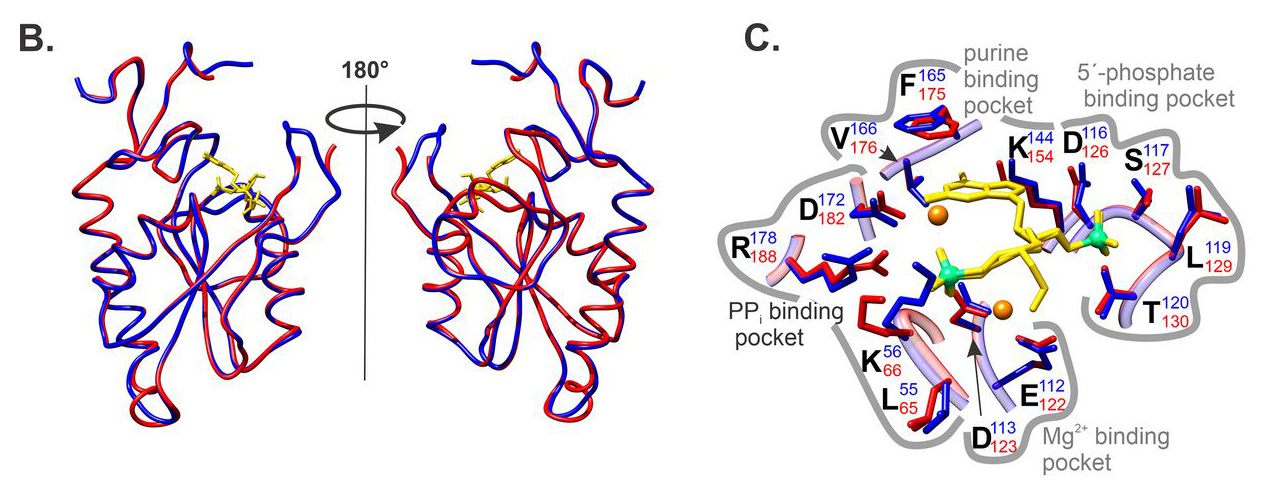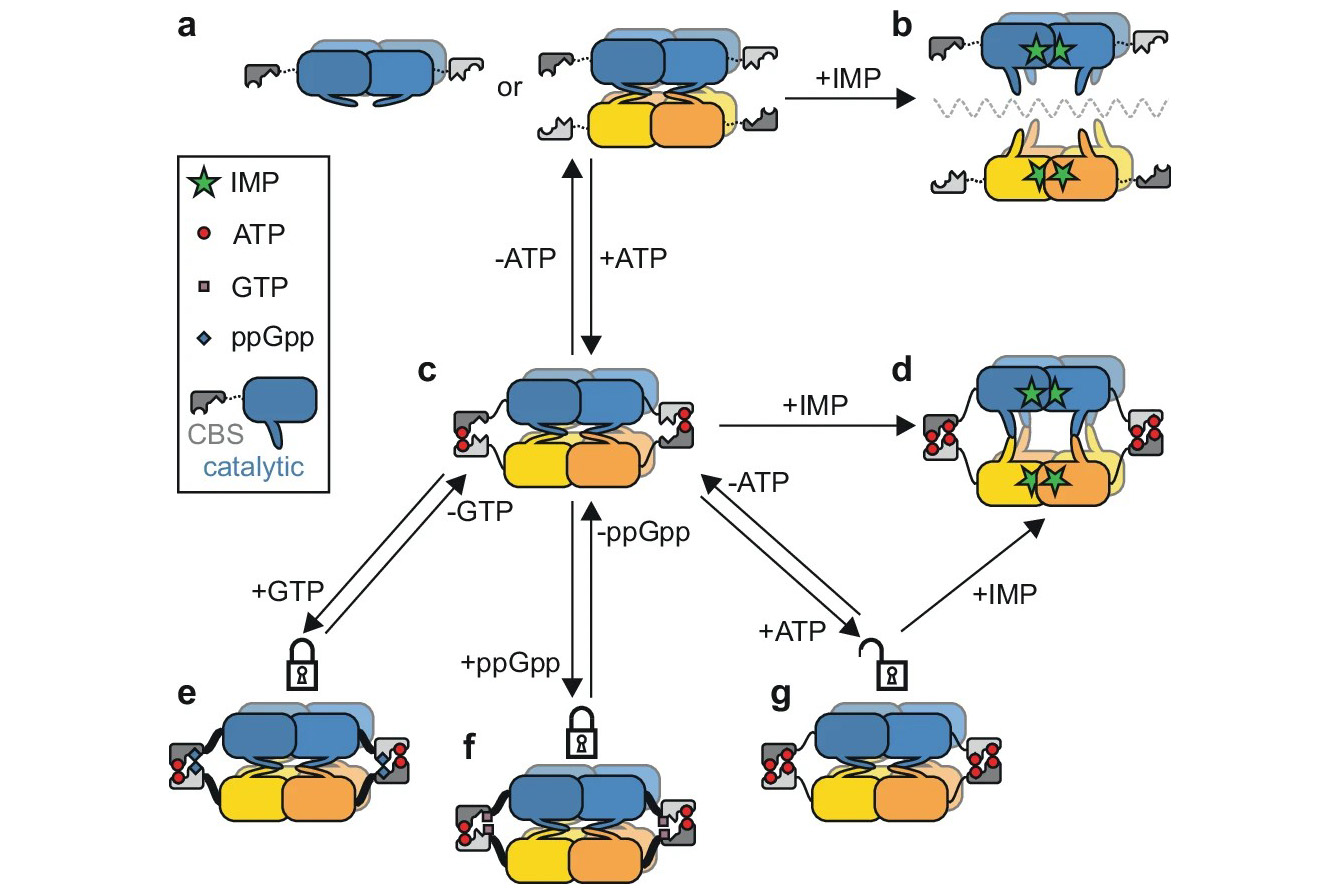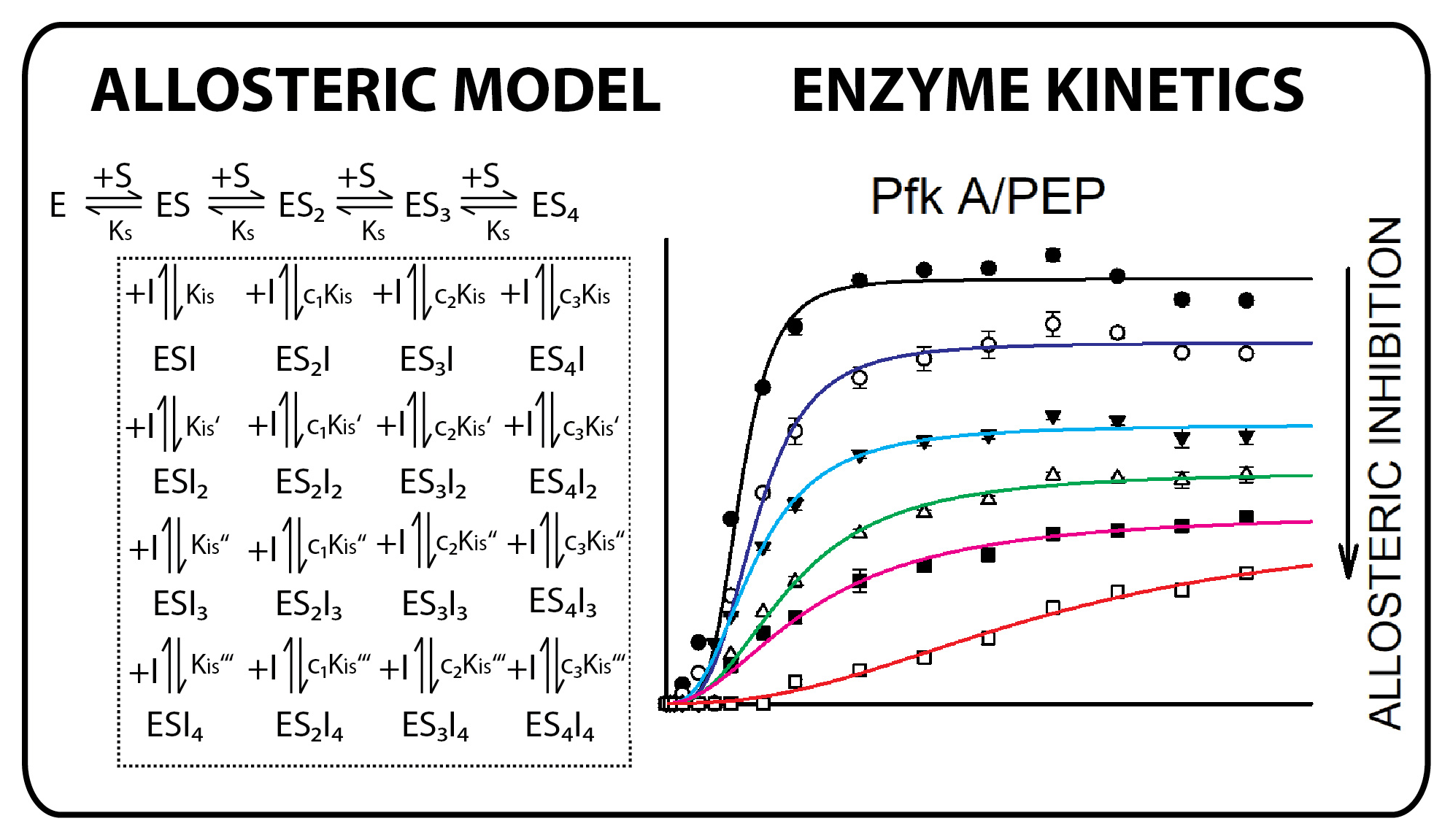
The hypoxanthine-guanine phosphoribosyltransferase (HGPRT) has been considered one of the key enzymes of the purine salvage pathway in Mycobacterium tuberculosis (and a potential target for specific inhibitor development), as well as important for its growth.
However, the IOCB Prague researchers led by Iva Pichová, studying M. smegmatis, a common model organism for M. tuberculosis, used the methods of genomic deletion analysis and discovered that even with HGPRT enzyme deleted, bacteria continued to grow and the prodrugs of acyclic nucleoside phosphonates known to inhibit HGPRT isolated from M. tuberculosis were still active.
This shows, surprisingly, that this enzyme is not essential for M. smegmatis growth and the inhibitors target actually another system than the one originally supposed.
Read the paper:
- Knejzlík, Z.; Herkommerová, K.; Hocková, D.; Pichová, I. Hypoxanthine-Guanine Phosphoribosyltransferase Is Dispensable for Mycobacterium smegmatis Viability. Journal of Bacteriology 2020, 202, e00710-19. http://doi.org/10.1128/JB.00710-19






